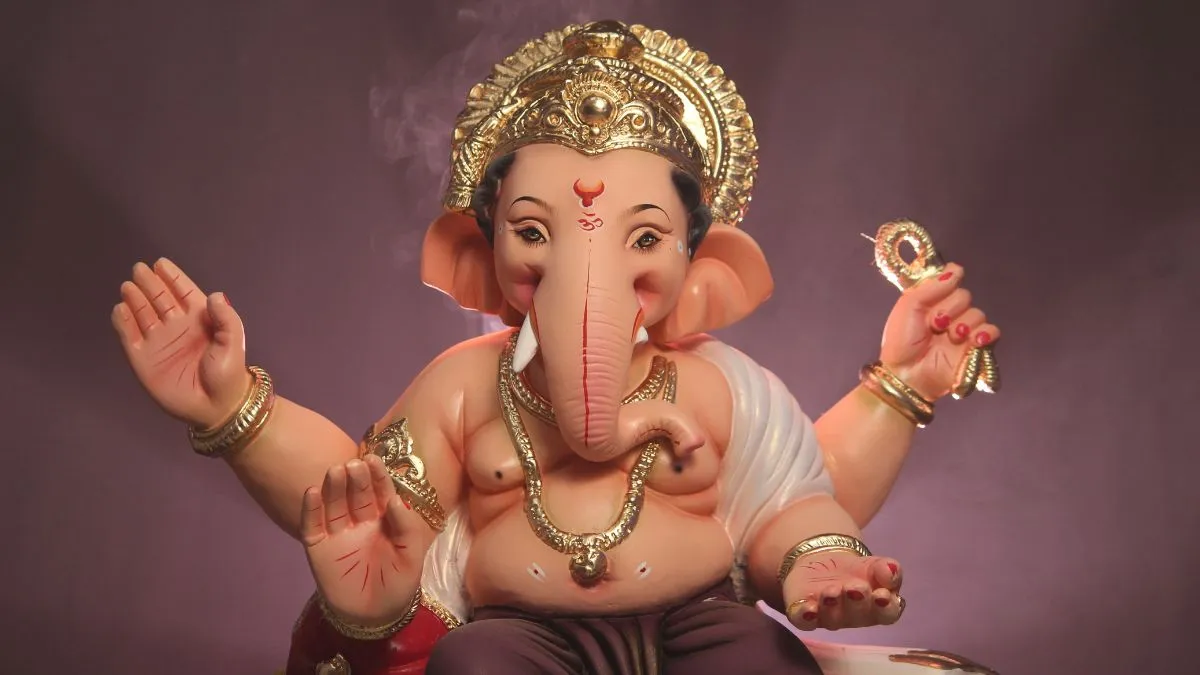Lord Ganesha, the revered remover of obstacles, has long been a source of fascination for hismajestic elephant head andhis endearing mouse vehicle. Each of these aspectsholds significance. Let's dive into the astrologer Ishaan Yadav's expert insights and uncover the captivating reason behind Lord Ganesha's unique smile.
Why Lord Ganesha Has One Broken Tooth: Four Major Tales
Lord Ganesha, the elephant-headed deity, symboliseswisdom, strength, and the removal of obstacles in Hinduism.His broken tusk is a key feature, and its significance is steeped in various legends. Each story offers profound insights into the reasons behind his unique appearance and serves as a powerful symbol of sacrifice, determination, and divine intervention.

Parashuram and the Axe
The first legend, from the Brahmanda Purana, tells of Parashuram, the sixth avatar of Vishnu, who went to Kailash to express gratitude to Lord Shiva after his victory over Kartavirya Arjuna. When Parashuram arrived, Ganesha, guarding the entrance, blocked his way. Angered by the obstruction, Parashuram tried to strike Ganesha with his divine axe, a gift from Lord Shiva. Knowing the weapon’s power, Ganesha didn’t block the blow, resulting in the severing of his tusk. This event gave Ganesha the name Ekdanta (one tusked).
Writing the Mahabharata
Another popular tale comes from the Mahabharata. Sage Vyasa sought Ganesha’s help to transcribe the epic. Ganesha agreed, under the condition that Vyasa would recite it continuously, without pause. During the dictation, Ganesha’s pen broke, so he broke off his left tusk and used it as a writing instrument to continue the task. This act of self-sacrifice and commitment emphasises Ganesha’s wisdom, resolve, and dedication to completing a noble purpose.

The Moon and the Curse
In a lighter, yet important story, Ganesha was mocked by the moon while riding his mouse to a feast at Indra’s palace. Infuriated by the moon’s ridicule, Ganesha snapped off his tusk and hurled it at the moon, cursing it to never appear fully bright again. However, the moon god pleaded for forgiveness, and Ganesha, showing mercy, allowed the moon to go through its phases. This tale also explains why looking at the moon on Ganesh Chaturthi is considered inauspicious and brings bad luck.
Gajamukha and Mooshak Vahana
In another Puranic story, Ganesha fought and defeated the demon Gajamukha in a fierce battle. Ganesha broke off his own tusk and used it as a weapon to defeat Gajamukha. After Ganesha’s victory, the demon transformed himself into a mouse to escape. However, Lord Ganesha, despite the demon’s disguise, recognised the transformation and, with divine understanding, mounted the mouse. Humiliated by his defeat and transformation, Gajamukha surrendered to Ganesha and requested to be his vehicle. He then became Ganesha’s faithful companion and vahana, symbolising the union of strength and wisdom.
"The tales surrounding Ganesha’s broken tusk reveal deep spiritual meanings of sacrifice, wisdom, power, and divine intervention. Whether it’s the story of Parashuram’s axe, the writing of the Mahabharata, the curse on the moon, or the transformation of Gajamukha, each tale highlights different aspects of Ganesha’s character—his ability to overcome challenges, his wisdom, and his capacity for mercy and protection. His broken tusk continues to be a timeless symbol of resilience and selflessness," concluded the expert.
If you liked this story, then please share it. To read more such stories, stay connected to HerZindagi.
HerZindagi Video

Take charge of your wellness journey—download the HerZindagi app for daily updates on fitness, beauty, and a healthy lifestyle!


Comments
All Comments (0)
Join the conversation